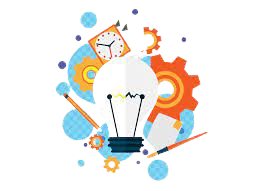
This is the simulated part of project which includes DHT22 sensor to sense temprature and report it to the farmer and a PIR sensor to report if any plant is in the way or if any animal activity is reported. It also has a led display which turns on when PIR sensor stimulates motion.

Makershala is a Learning by Making ecosystem for kids from age 8-16 to help them discover their interests, develop future skills and deepen conceptual understanding. Makershala follows the Project Based Learning approach as its way of teaching in which kids work on authentic, real life & personally meaningful projects.
Kids work on these projects in different educational settings, namely; self-learning; online 1:4 Peer to Peer with a mentor; or in a school. Projects are categorized in different interest segments like Robotics, Coding, Electronics, 3D Printing, Animations, Photography, Machine Learning, Astronomy and many more.
Each project is mapped with classroom concepts, 21st century skills, UN sustainable development goals and interests/careers to not only focus on holistic development of a child but help them identify their calling by giving them exposure to problems that exist in the real world.
Project-Based Learning has the potential to solve many of the learning problems we see today beyond foundational literacy.
Project-Based Learning has the potential to solve many of the learning problems we see today beyond foundational literacy.




